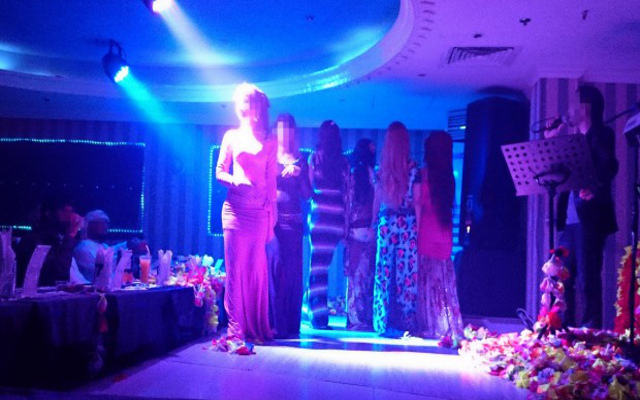The majority of women working as prostitutes in the United Arab Emirates (UAE) are victims of human or sex trafficking; some are victims of both. Prostitution is an established and growing industry in the country, with the Guardian reporting in 2010 that an estimated 30,000 prostitutes worked in the emirate of Dubai alone. There are no indications that this number has decreased in recent years. Prostitution is illegal in the UAE, and as such, Emirati authorities treat prostitutes as criminals. However, prostitution is the most common manifestation of sex trafficking in the UAE. This is problematic, because Emirati officials criminalize victims for acts directly related to them having been trafficked.
Women are forced into prostitution in two ways. Those who are directly trafficked into prostitution are lured to the UAE with promises of positions as secretaries, masseuses, or domestic workers. Fellow countrymen and women are commonly used to traffic women, because they appear trustworthy. They often share positive stories of life in the UAE before luring the women into prostitution rings. Some women, usually domestic workers, are trafficked after fleeing their abusive employers.
Once women are sex trafficked, their new traffickers will often confiscate their passports and bring them to a crowded apartment filled with other trafficked women. Their traffickers often lock them in small rooms without food or water, verbally harass, and physically beat them until they break down and agree to meet with clients.
The control most traffickers exert over the trafficked women when they first arrive remains throughout daily life. Some employers manage which clients the women service, setting up appointments and locations. The traffickers will then transport the women to their appointments. Some women are forced to solicit their services in hotel bars under their employer’s gaze. These women are threatened with further physical abuse if they do not meet their employers’ expectations.
Some hotels welcome the added business and financial gain that comes along with prostitution. Many of these hotels actively work to maintain prostitution in their establishments. Some offer drink vouchers to the women while they wait for men to take interest in them. Others provide free continental breakfasts to the women after their long nights of work. Higher-end prostitutes can act as luring devices for wealthy businessmen who spend large amounts of money at the hotel bars. The businessmen also usually rent rooms in the hotels to use with the prostitutes.
Prostitutes operate quite openly in hotels and bars in the UAE. There are many TripAdvisor reviews of hotels in the UAE openly discussing prostitution. The Internet is also rife with personal blogs detailing which places to go to find prostitutes, especially in Dubai. Some blogs compile these lists in order to warn tourists where not to visit. Many of these blogs even take note of which nationalities of women can be predominantly found in each place.
Hotels are not the only prostitution hubs in the UAE. Prostitution is also widespread in massage parlors, where recruiters lure many women, especially East Asian women, to the UAE through promises of jobs as masseuses. Women working in massage parlors are usually given actual massage clients. Their employers then force the women to engage in sexual acts with clients. Like prostitutes operating out of hotels, women working in massage parlors usually operate under the watchful eyes of their traffickers. Most trafficked women who refuse to perform up to the expectations of their traffickers face physical and sexual abuse.
The Emirati government does little to help these victims and at times actively criminalizes them. The UAE has operated shelters for sex trafficking victims since 2009, and there are currently shelters in Dubai, Sharjah, and Ras al-Khaimah. But, as of late January 2016, fewer than 250 women and children have ever stayed in them. While victims of forced prostitution are regularly subjected to mental and physical abuse, they are often unable to seek justice against their traffickers. Prostitution is illegal in the UAE, and authorities routinely arrest and deport women found engaging in the practice.
The Government of the UAE does publicly address its need to further combat sex trafficking within its borders. However, it has not yet demonstrated its ability to translate this rhetoric into practice. Trafficked women routinely face physical and mental abuse while being reprimanded and criminalized for seeking help. The UAE needs to view every prostitute as a victim of trafficking until a thorough investigation proves them a criminal. Until that happens, the UAE continues to be complicit in the sex trafficking and abuse against women occurring within the country.
Brittany Hamzy is an Advocacy Fellow at ADHRB.





